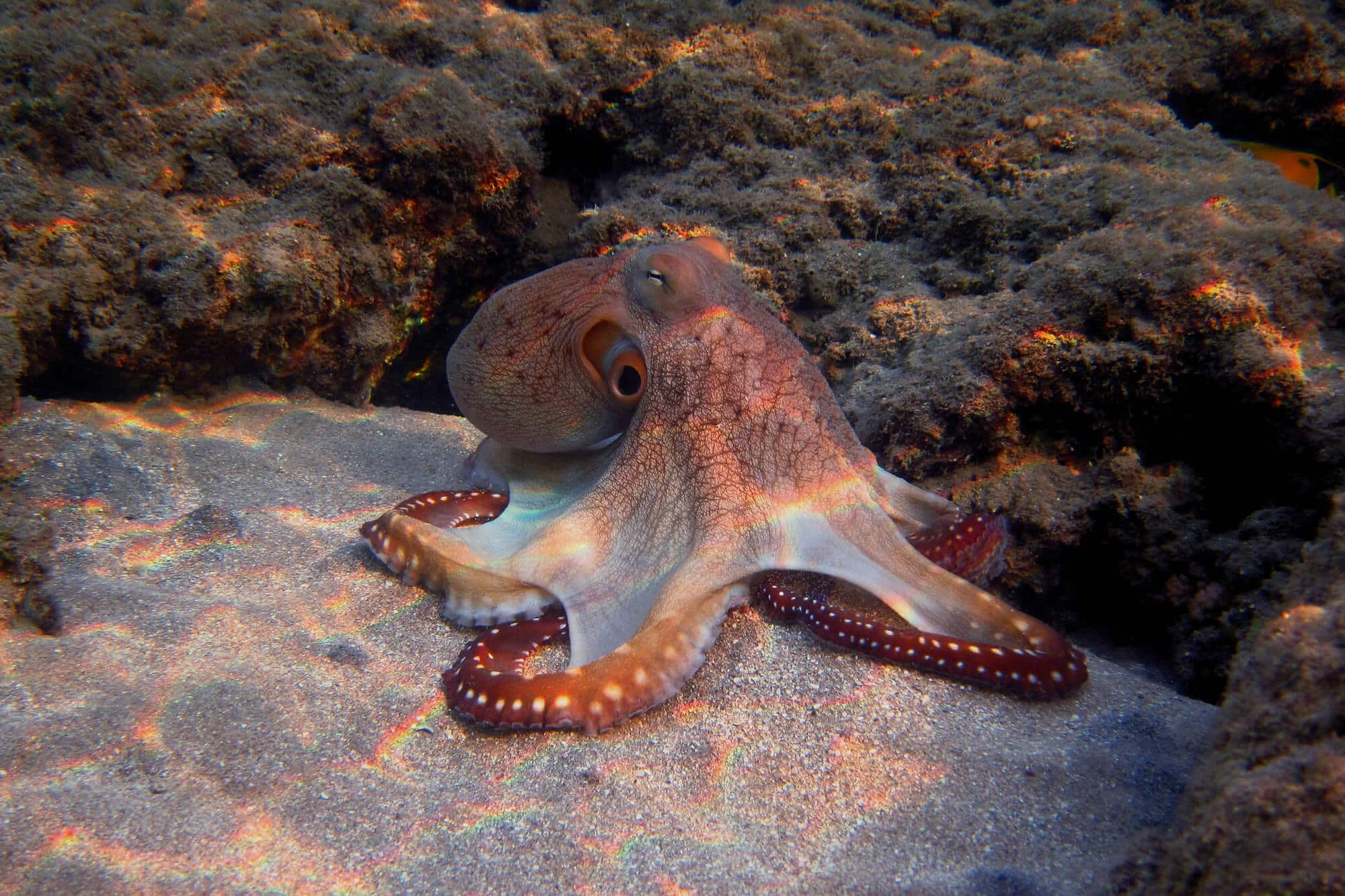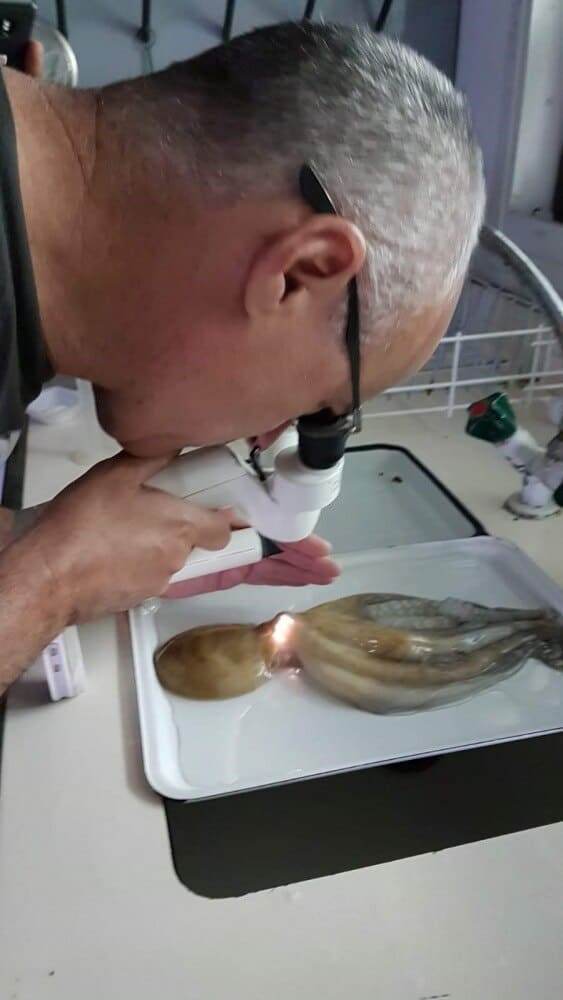Prof. Ron Ofari: "Eye examination of octopuses requires full anesthesia by adding anesthetics to the water and adapting the test instruments designed for testing on land to testing in a marine environment. Add to that the structure of the eyes of octopuses, which is significantly different from the eyes of mammals, and examining them is not a simple procedural procedure"

Octopuses tend to make headlines for magical properties attributed to them by the public, such as predicting the future. We have often heard about the octopus that predicts who will be the winning team in the World Cup or the largest party in the election systems in Israel and around the world. Despite the characteristic that stuck to them - seeing the future - ironically, we don't tend to think about the quality of the true vision of octopuses. About two years ago, researchers Dr. Nir Nesher and Dr. Tal Shamrat from the Rupin Academic Center noticed inexplicably poor eyesight in octopuses kept in their research laboratory. Since they had not encountered the problem before, they turned for help to Prof. Ron Ofari, an expert in veterinary ophthalmology at the Kort School of Veterinary Medicine, in the Faculty of Agriculture, Food and Environment of the Hebrew University, who began the complex examination in order to solve the mystery.

How do you dissect an octopus?
On the face of it, the problem seems to have a simple solution, but it really isn't. Together with Dr. Oren Par and Dr. Dekla Arad, doctors in the ophthalmology department at the University Veterinary Hospital, Prof. Ofari came to check the octopuses. Prof. Ofari: "Eye examination of octopuses requires full anesthesia by adding anesthetics to the water and adapting the test instruments intended for testing on land to testing in a marine environment. Add to that the structure of the eyes of octopuses, which is significantly different from the eyes of mammals, and examining them is not a simple procedural procedure."
A preliminary examination revealed that some of the eyes were blind due to cataracts (cloudiness of the lens), a common problem in mammals, including humans, but in other eyes the cause of blindness was unclear. Since apart from the vision problem the octopuses were healthy, it was decided to return them to the aquarium and leave the mystery hanging in the air. After a few months, the octopuses passed away with a good return, and the eyes were sent to a laboratory in the US that specializes in the pathology of the eye in animals. Prof. Ofari: "The examination revealed that in addition to cataracts, the octopuses suffered from inflammation of the lens and retina caused by parasite infestation. The lab also reported that they recently diagnosed a similar problem in the eyes of a giant octopus from the Denver City Aquarium. We hope that our results will help veterinarians and researchers understand and prevent cases of blindness in this amazing animal."
For the full article, published in the journal Veterinary Ophthalmology
More of the topic in Hayadan:
- Do octopuses dream of electric sharks?
- The myth is busted: an octopus does not have an independent brain in each arm
- hide like an octopus
- The genome of a common octopus species, which allows them to have three almost completely independent hearts and minds in each arm, has been deciphered
- How do the octopus's arms not get tangled in each other?
